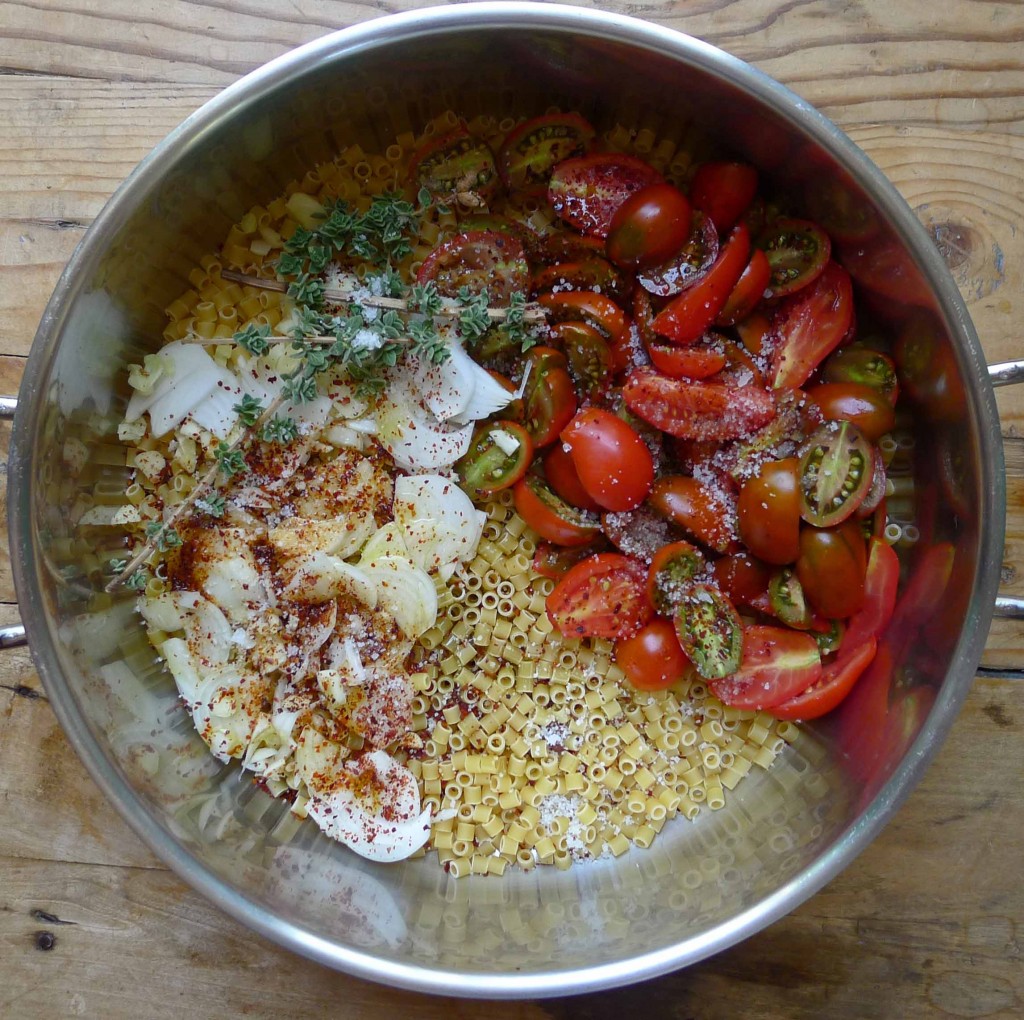
I remember this peasant dish as skordomakarona (garlic macaroni) or makaronia bloom (flooded macaroni) because it was somewhat soupy. My mother made it occasionally for dinner –our secondary meal. For lunch she often made the more elaborate Greek makaronada: a platter of macaroni –usually overcooked– topped with rich, cinnamon-scented tomato sauce, sprinkled with copious amounts of grated kefalotyri cheese and then drizzled with sizzling sheep’s milk butter that partly melted the cheese, creating the desirable cords… My father loved this makaronada and usually ate more than he should, then blamed my mother for his stomach ache; she should have removed the platter from the table after serving, so he couldn’t have helped himself again and again, he shouted. I don’t think we witnessed this recurring argument for any other family dish, and I remembered it yesterday, as I kept adding to my plate more and more One-Pot-Pasta. (more…)
 Sardeles Marinates
Sardeles Marinates I never get tired of them, and one of the beauties of home-marinated sardines is that they keep for a week or more in the refrigerator, so I don’t have to make them often.
I never get tired of them, and one of the beauties of home-marinated sardines is that they keep for a week or more in the refrigerator, so I don’t have to make them often. 


